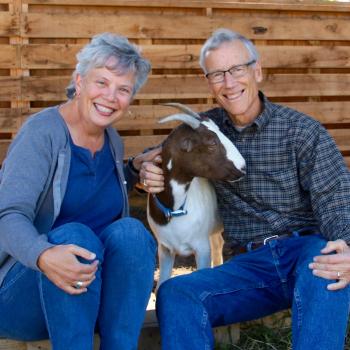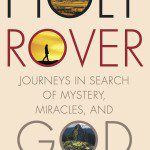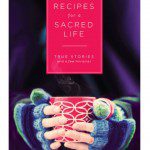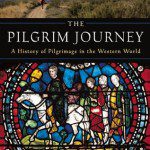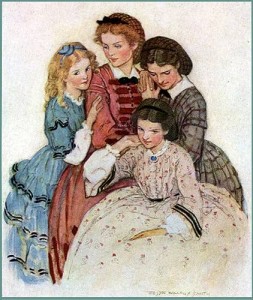
Today, we turn to my friend, Jo March. Oh, I know there’s a difference between the heroine of Little Women and the Louisa May Alcott who wrote the beloved children’s classic, but as someone who has read the book at least ten times, the two shade together.
First, a warning: if you’re not a Little Women fan, this post may not be interesting to you. I remember that as we were about to enter the Alcott House in Concord, my two teenage boys were in tow, good-naturedly agreeing to an hour-long tour. Then we stepped inside the gift shop, and every single person inside was female: grandmothers, mothers, and excited, chattering little girls. My younger son gazed at me with a stricken expression, looking like a wild animal about to be caught in a trap. “You can do this one on your own, Mom,” he said, bolting for the door.
So I did. And as you might expect, I loved the Alcott House, which is the home where the Alcott family lived for nearly two decades, including the time when Louisa was writing Little Women.
The home is officially known as Orchard House, named for the apple trees that once bordered it. Before moving here, the Alcott family had moved 22 times in nearly 30 years, a testimony to the ne’er-do-well character of Louisa’s father, Bronson Alcott.
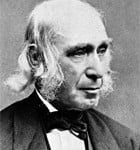
I hope there are no fans of Bronson reading this post, for I have a hard time being anything other than utterly exasperated by him. “Crazy old coot” doesn’t begin to do him justice, though during his life he actually had a considerable—though undeserved—reputation as an educational reformer and philosopher.
Let us dwell, for a few moments, on the oddities of Bronson Alcott. The school he had founded in Boston had closed amid scandal and bankruptcy, and he came to Concord in 1840 for a fresh start, invited by Emerson (who, with his usual generosity, offered to pay the family’s rent). While there he established Fruitlands, a Utopian community where “Bronson Alcott’s ideas grew to their looniest ripeness,” in the words of Susan Cheever in American Bloomsbury.
The charming but pretentious Bronson attracted eccentrics as odd as himself (including one man who refused to wear clothing and another who when he was in a good mood would climb to the top of trees and shout). Because Bronson didn’t believe in exploiting animals, the community was strictly vegetarian, and didn’t even use honey from wild bees or manure for fertilizer. The only beast of burden at Fruitlands was Bronson’s poor wife, who worked herself to exhaustion with endless chores.
Not surprisingly, Fruitlands failed after seven months, and the Alcott family returned to Concord in 1844, moving to a pig farm close to Emerson’s house, into a house known as Hillside.
Tomorrow I’ll tell you more about Louisa May Alcott, who loved her father despite his infinite peculiarities. But I leave you today with a short selection from Bronson’s writings, a piece of prose so murky, so pretentious, and so impenetrable that one can only stand back and admire it with a kind of awe. I include it to show that not everyone in Emerson’s circle was a genius:
“Nature is quick with spirit. In eternal systole and diastole, the living tides course gladly along, incarnating organ and vessel in their mystic flow. Let her pulsations for a moment pause on their errands, and creation’s self ebbs instantly into chaos and invisibility again. The visible world is the extremist wave of that spiritual flood, whose flux is life, whose reflux death, efflux thought, and conflux light. Organization is the confine of incarnation,—body the atomy of God.”
In the latter years of his life Bronson Alcott would sit with a basket of apples outside Orchard House, enticing passersby to sit for a spell and eat a free apple. While they ate, he would expound upon his philosophy, holding them captive as he talked and talked and talked and talked. I have warned my husband, who is also a philosopher, that this is what happens when philosophers go bad.


